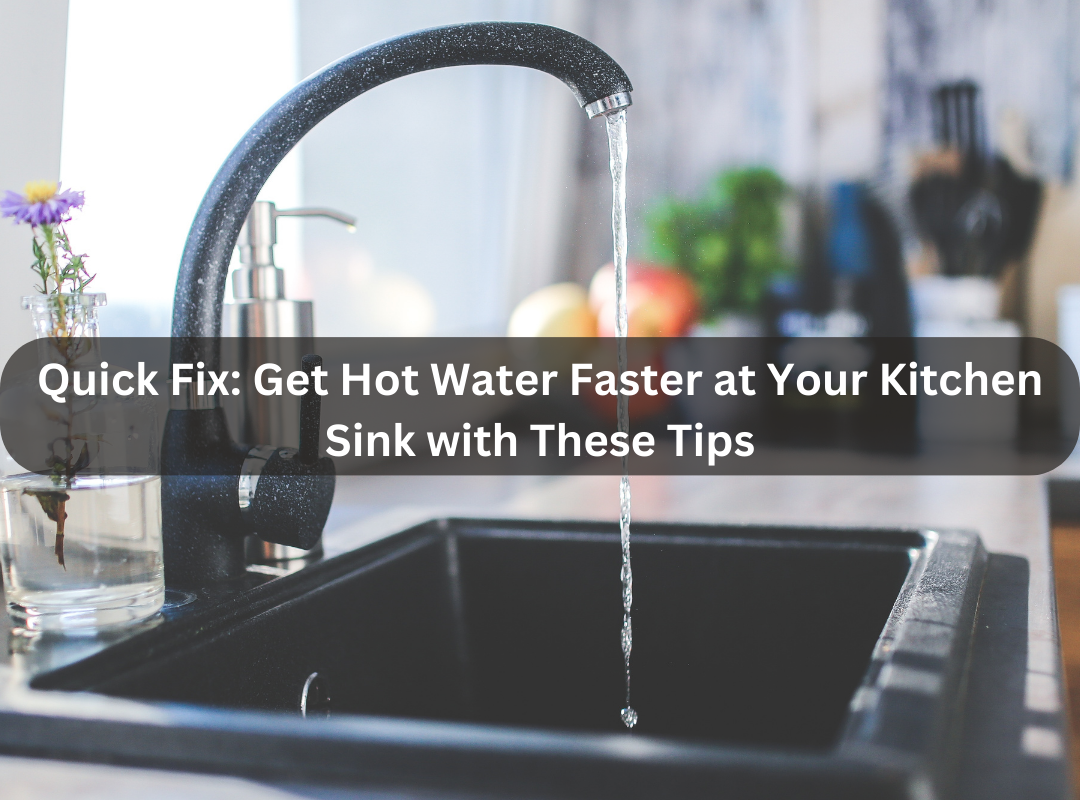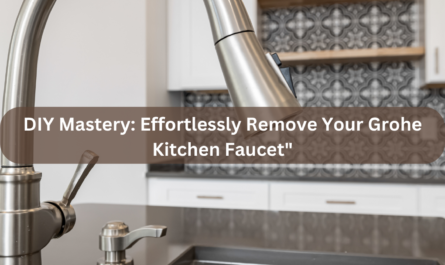Introduction For How To Get Hot Water Faster At Kitchen Sink
In the rhythm of daily life, waiting for hot water at the kitchen sink can be both inconvenient and wasteful. The desire for instant access to hot water prompts a quest for efficient solutions that not only reduce wait times but also contribute to energy conservation. In this comprehensive guide, we explore various methods to expedite the arrival of hot water at the kitchen sink.
From innovative technologies like hot water recirculation systems to practical tips for optimizing existing setups, this guide aims to empower homeowners to create a kitchen space where hot water flows swiftly, enhancing both convenience and resource efficiency.
Q1: How can I get hot water faster at my kitchen sink?
A1: Consider installing a hot water recirculation system to minimize the wait time for hot water.
Q2: Are there alternative methods to get hot water quickly in the kitchen?
A2: Yes, insulating hot water pipes and using a point-of-use water heater are effective alternatives.
Q3: How does insulating hot water pipes help in getting hot water faster?
A3: Insulation reduces heat loss during water transit, ensuring hot water reaches the kitchen sink more quickly.
Q4: Can adjusting the water heater temperature impact hot water delivery time?
A4: Yes, setting the water heater to a slightly higher temperature can enhance hot water delivery.
Q5: Is it advisable to keep the faucet open to get hot water faster?
A5: No, keeping the faucet open wastes water; consider alternative solutions like recirculation systems.
Q6: What is a hot water recirculation system, and how does it work?
A6: It’s a system that circulates hot water continuously, preventing it from cooling in the pipes and providing instant hot water when needed.
Q7: Can I install a hot water recirculation system myself?
A7: Yes, some systems are designed for DIY installation, but professional installation may be preferable for more complex setups.
Q8: Are there drawbacks to using a hot water recirculation system?
A8: Energy consumption and potential heat loss from the pipes are considerations, but newer systems address these issues more efficiently.
Q9: How does a point-of-use water heater expedite hot water delivery?
A9: It heats water directly at the faucet, eliminating the need for hot water to travel through pipes.
Q10: Can a tankless water heater improve hot water delivery in the kitchen?
A10: Yes, tankless water heaters heat water on demand, providing hot water faster than traditional tank-type heaters.
Q11: Is it necessary to flush the hot water heater to improve performance?
A11: Yes, flushing removes sediment and maintains the heater’s efficiency, ensuring quicker hot water delivery.
Q12: Can installing a recirculating pump be a cost-effective solution?
A12: Yes, recirculating pumps can be energy-efficient, especially when equipped with timers to operate only when needed.
Q13: How does water pressure affect hot water delivery time?
A13: Adequate water pressure ensures a swift flow of hot water; address any pressure issues for optimal performance.
Q14: Can using a low-flow aerator on the faucet improve hot water delivery?
A14: Yes, low-flow aerators reduce water consumption and can contribute to faster hot water delivery.
Q15: Are there smart home technologies that expedite hot water delivery?
A15: Yes, smart recirculation systems and water heaters allow remote control and scheduling for efficient hot water management.
Q16: Does the length of hot water pipe affect delivery time?
A16: Yes, shorter distances between the water heater and the kitchen sink generally result in faster hot water delivery.
Q17: How can I test and adjust the temperature at the faucet for optimal comfort?
A17: Use a thermometer to measure and adjust the temperature at the faucet, ensuring it meets your preferences.
Q18: Can water hammer issues impact hot water delivery time?
A18: Yes, addressing water hammer issues through the installation of water hammer arrestors can improve water flow and hot water delivery.
Q19: Is it recommended to consult a professional plumber for hot water delivery issues?
A19: Yes, a professional plumber can assess your specific setup and recommend the most suitable solutions for faster hot water delivery.
Q20: Are there government incentives for installing energy-efficient hot water systems?
A20: Yes, some regions offer incentives or rebates for installing energy-efficient hot water systems, encouraging homeowners to adopt more efficient solutions.
Conclusion On How To Get Hot Water Faster At Kitchen Sink
As we conclude this exploration into expediting hot water delivery at the kitchen sink, envision a culinary space where the convenience of instant hot water harmonizes with sustainability. By adopting solutions such as hot water recirculation systems, point-of-use heaters, and mindful adjustments, you transform the mundane act of waiting into an efficient and eco-conscious experience.
Here’s to a kitchen where the flow of hot water matches the pace of your culinary creations—a space where time is optimized, resources are conserved, and the joy of cooking is seamlessly intertwined with the practicality of a swiftly flowing hot water faucet.




